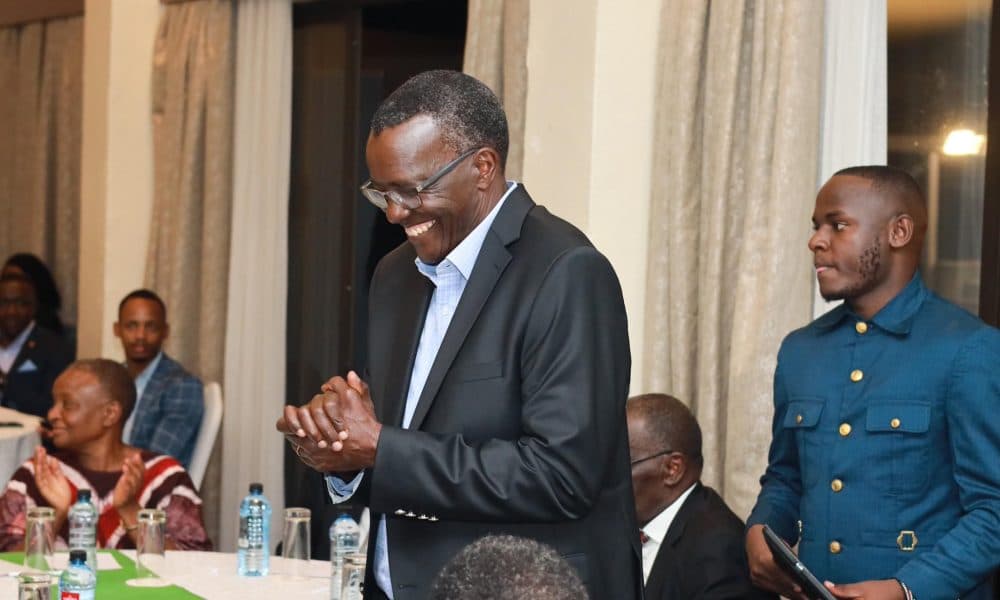We're loading the full news article for you. This includes the article content, images, author information, and related articles.
Former Chief Justice David Maraga opens up on a 20-year struggle with alcoholism that nearly derailed his career, offering a rare, high-profile testimony on addiction and redemption in Kenyan public life.

Former Chief Justice David Maraga, a figure renowned for his staunch Seventh-day Adventist faith and landmark judicial rulings, has publicly detailed a decades-long battle with alcoholism that began in his secondary school years and nearly cost him his family and career. In a series of candid revelations, most recently in an interview on Monday, November 24, 2025, with media personality Oga Obinna, Maraga, who is now a presidential aspirant, recounted a past life of heavy drinking that stands in stark contrast to his public persona.
Maraga's struggle with alcohol began after he was introduced to it by peers at Maranda High School. He stated that while he was a well-behaved boy in primary school and had been baptized into the SDA church in 1965, he fell into "bad company" in secondary school. This habit intensified through his time at Kisii High School for his A-levels, continued during his law studies at the University of Nairobi, and persisted after he was admitted to the bar and began practicing as a lawyer in Nakuru. For approximately 20 years, he described his life as being in a state of professional stagnation, where he provided only the bare necessities for his family and ignored opportunities for career advancement. "I drunk hard and, except for providing for the bare necessities, I ignored my family and literally mark-timed for about 20 years," Maraga stated in a 2018 speech at the Catholic University of East Africa.
The pivotal moment that forced him to confront his addiction came after a night of heavy drinking at an army barracks in Nakuru. Maraga recounted drinking until 2:00 AM and waking up the next morning in his home with no memory of how he got there. The realization that he could have died that night served as a profound wake-up call. "The next morning, I couldn't even remember how I got home. I realised I could have died, and that's when I decided to quit completely," he explained. This near-death experience was the culmination of several dangerous incidents, including a minor car accident and another occasion where he ran out of fuel on his way back to Nakuru from Nairobi and had to rely on touts to find passengers who could contribute to the fuel cost.
On January 1, 1991, Maraga made the life-altering decision to quit alcohol and returned to the church. Some reports cite the year as 1992, though recent interviews specify 1991. "I went to church that day and never looked back," he stated. He acknowledged that the path was not easy, as some friends mocked him for his decision, which led him to distance himself from that social circle. This change, he attests, was instrumental in reshaping his life and career trajectory. He pursued a Master of Laws degree 34 years after his undergraduate studies and believes his renewed sense of purpose and faith were critical to his eventual appointment as a judge in 2003 and, ultimately, as Kenya's 14th Chief Justice in 2016. "I am sure I would not have been appointed Judge, leave alone being the Chief Justice of the Republic of Kenya today, had I not eventually found my purpose in life and pursued it relentlessly,” he said.
Maraga's testimony provides a powerful narrative on addiction, personal accountability, and the possibility of transformation. As a prominent public figure who has now entered the political arena with a declaration for the 2027 presidential race, his story carries significant weight. It challenges the stigma often associated with alcoholism in Kenya and offers a high-profile example of overcoming personal struggles. His journey from a 20-year dependency on alcohol to presiding over the Supreme Court—where he led the historic 2017 decision to nullify a presidential election—highlights a remarkable personal and professional transformation that will likely feature in his political narrative. His candor serves as both a cautionary tale for the youth about peer pressure and a message of hope for those battling addiction.
Keep the conversation in one place—threads here stay linked to the story and in the forums.
Sign in to start a discussion
Start a conversation about this story and keep it linked here.
Other hot threads
E-sports and Gaming Community in Kenya
Active 9 months ago
The Role of Technology in Modern Agriculture (AgriTech)
Active 9 months ago
Popular Recreational Activities Across Counties
Active 9 months ago
Investing in Youth Sports Development Programs
Active 9 months ago